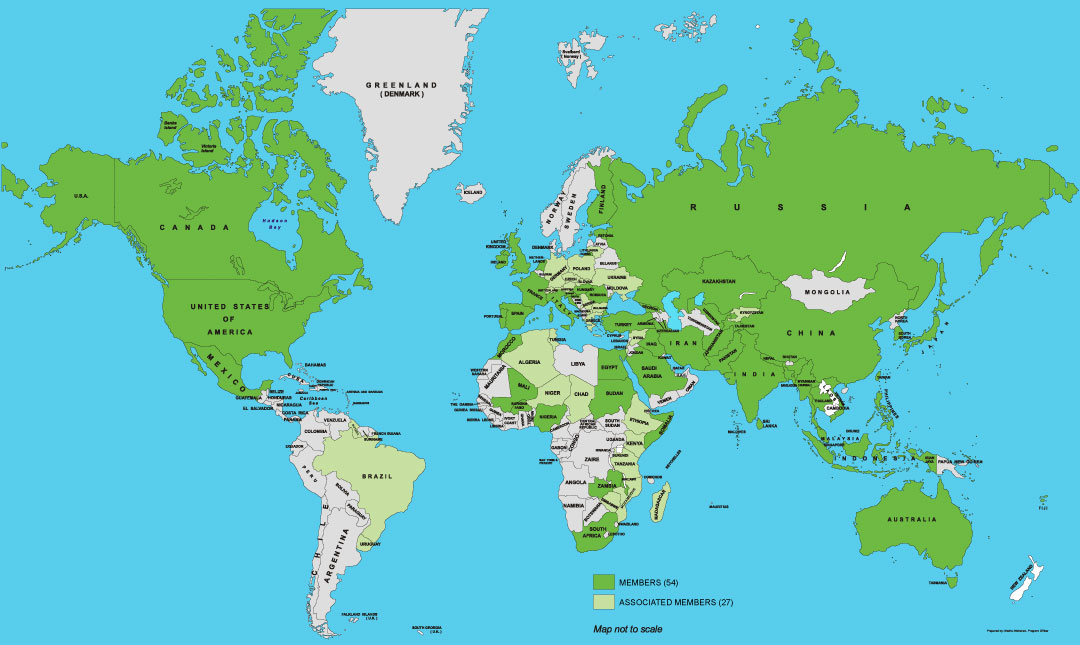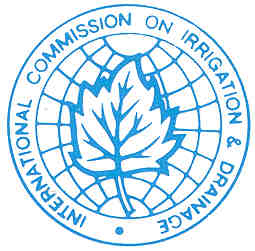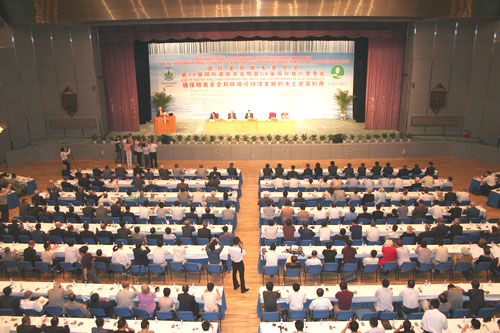
One of the major environmental benefits of drainage is its positive impact on improving the health of humans, plants and farm animals. Drainage of wet, swampy areas has led to a reduction in mosquito breeding sites in all parts of the world. The effect has been a drop in the incidence and prevalence of important water related and mosquito transmitted diseases, e.g., malaria, yellow fever and filariasis.
Furthermore, drainage of stagnant water can eliminate foot-rot in large animals and, to a certain extent, the breeding environment of aquatic and semi-aquatic snails, which are the intermediate host of schistosomiasis. Drainage also reduces or eliminates mildew infections and various root rots of plants.
By growing high value food crops in well-drained soils, the health, nutrition and economic status of rural populations can be improved. There are also increased opportunities for employment, as new industries may develop in prosperous areas.
Where drainage is used to reclaim salinized and waterlogged lands, it is an environmentally beneficial practice, because the land is returned to its full productive potential. The adaptation of subsurface drainage systems to serve as sub-irrigation or controlled drainage systems leads to other benefits, i.e., the reduction of nitrate pollution.
The field-scale benefits of drainage can be summarized as follows:
- Drainage promotes beneficial soil bacteria activity and improves soil tilth.
- There is less surface runoff and soil erosion on drained land.
- Improved field machine trafficability reduces soil structural damage. Soil compaction is reduced and less energy is required for field machine operations. Drainage also allows for timelier field operations. Consequently, the growing season can be lengthened and crops can achieve full maturity.
- Crop yields are increased because of improved water management and uptake of plant nutrients.
- Higher value crops can be planted, and there is flexibility to introduce new and improved cropping systems.
- In general, land value and productivity are increased.
- Farm income is increased and income variability reduced.
- Drainage maintains favourable salt and air environments in the crop root zone.
Related items you may like









































































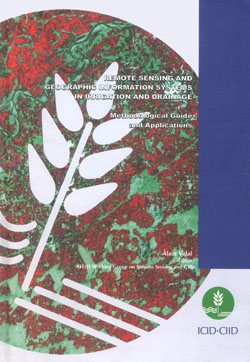



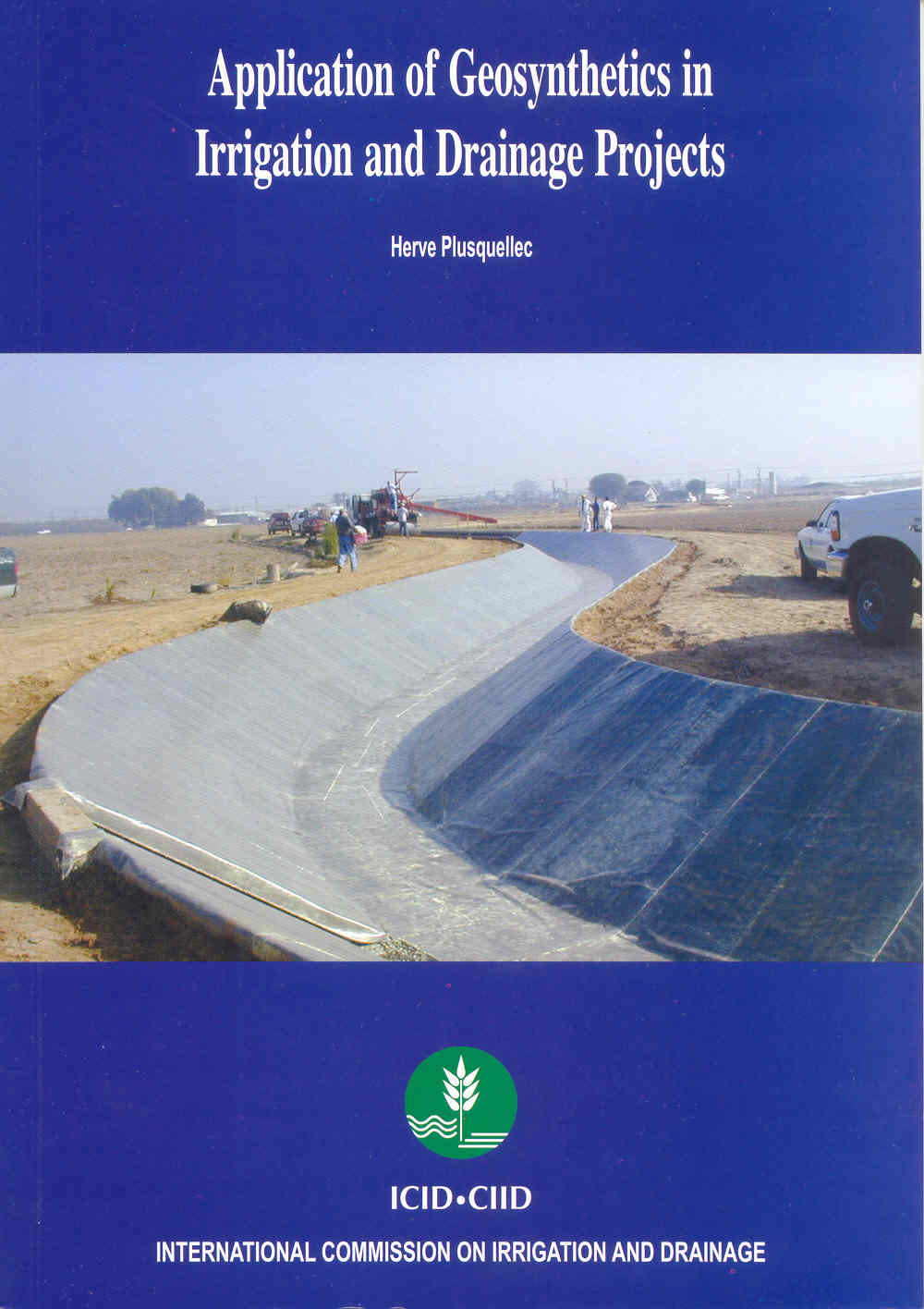



Irrigation
Sources of Irrigation
Irrigation History +
Sources of Irrigation +
IMPROVING SOIL MOISTURE +
Ponds +
Tanks +
Diversion Weirs +
Dams and Reservoirs +
Groundwater +
Conjunctive Water Use +
Wastewater +
Poor Quality Water +
Application of Irrigation water
Canal Irrigation +
Flood Irrigation +
Deficit Irrigation +
Supplemental Irrigation +
Sprinkler Irrigation +
Drip Irrigation +
Lift Irrigation +
Centre Pivot Irrigation +
Tidal Irrigation +
Micro-Irrigation Technologies for Small Holders +
Automatic Irrigation Systems +
Pressurized Irrigation +
Irrigation in Viticulture +
Purpose of Irrigation
Instruments and implements of Irrigation
Pumps +
Centrifugal Pumps +
Submersible Pumps +
Turbine and Jet Pumps +
Conveying Pipes +
Sprinklers +
Drippers +
Canal Automation Systems +
Irrigation Management
Economics of Irrigation System +
I&D System Types +
I&D Investment Functions +
I&D Management Issues +
Participatory I&D Management +
Equity in Irrigation +
Irrigation Services +
Irrigation and environment
Pollution and Irrigation +
Irrigation and Climate Resilience +
Environmental Aspects of Irrigation +
Environmental Impacts of Irrigation +
Green Lawn Irrigation +
Safe Use of Waste Water in Irrigation +
Organic Agriculture +
Soil Health +
Soil Health Management +
Quality of Irrigation Water +
Capacity Development
Drainage
Drainage Types and Systems
Agricultural Drainage +
Field Drainage systems +
Canal Irrigation and Drainage +
Surface Drainage Systems +
Subsurface Drainage +
Mole Drainage +
Bio-Drainage +
Regional Bio-Drainage +
Drainage Issues
- Socioeconomic drought
- Drainage area, Drainage basin, River basin, Catchment area, Catchment basin, Catchment, Watershed
- Water parting, Drainage divide, Divide, Watershed divide, Watershed boundary, Topographic divide
- Yield of drainage basin, Annual yield of drainage basin
- Drainage modulus, or Drainage coefficient
- Economic yield
- External drainage
- Internal drainage
- Bio-drainage
- Drainage head
- Endogenic drainage
- Allogenic drainage
- Endoreic drainage
- Areic drainage
- Exoreic drainage
- Drainage gallery
- Drainage wells
- Horizontal drainage blanket, Pervious blanket, or Drainage filter
- Most economic section or Most efficient section
- Cross-drainage work, or Drainage crossing
- Level crossing, or Level drainage device
- Syphon aqueduct, Drainage syphon, Cross drainage culvert
- Drainage overpasses
- Venturi flume drainage crossing
- Drainage culvert, or Supply culvert
- Cross drainage
- Economic effectiveness of a flood management system
- Tangible losses and benefits
- Inverted drainage well, or Disposal well
- Irrigation through buried drains, Irrigation-drainage, or Vallenhove process
- Economic water duty
- Economic efficiency of irrigation
- Drainage
- Drainage channel
- Artificial drainage
- Lowland drainage
- Agricultural land drainage
- Drainage system
- Closed-drainage area, Blind drainage area, or Non-contributing area
- Drainage benefit
- Degree of drainage
- Field drainage
- Field drainage system
- Land drainage
- Natural drainage system
- Seepage drainage
- Subsurface drainage system
- Open channel drainage
- Surface drainage
- Main drainage system
- Drainage fittings
- Drainage pump sump
- Drainage trench
- Drainage head
- Horizontal subsurface drainage system
- Natural drainage or Natural drainage capacity
- Improved drainage or Artificial drainage
- Random drainage system
- Trenchless drainage
- Open-channel drainage
- Convergent drainage pattern
- Natural drainage systems, or Random drainage systems
- Cutoff drainage system, or Intercepting drainage system
- Herringbone drainage system
- Gridiron drainage system
- Double-main drainage system
- Composite drainage system
- Grouping drainage system
- Zigzag drainage system
- Cross-slope ditch system, or Drainage-type terraces
- Drainage-density
- Drainage pattern
- Superposed drainage, Super imposed drainage or Inherited drainage
- Subsurface drainage, Under drainage, Subsoil drainage, Underground drainage, or Covered drainage
- Relief drainage system
- Convergent drainage system
- Elkington drainage system, Sink-hole drainage
- Rerolle drainage system
- Across-the-slope drainage system, or Keythrope drainage system
- Vertical drainage, or Inverted well
- Mole drainage
- Surface drainage system
- Drainage coefficient, Drainage modulus or Drainage design rate
- Drainage design rainfall
- Drainage efficiency
- Drainage season
- Angular drainage pattern
- Arterial drainage
- Dendrite drainage
- Drainage boards (also called prefabricated drains)
- Slot drainage
- Radial drainage pattern
- Trellis drainage pattern
- Drainage density
- Vertical subsurface drainage system
- Drainage pumping station, Drainage pumping plant
- Economical haul distance
- Environmental protection
- Drainage terrace, Drainage control terrace, Interception and diversion terrace, Runoff control terrace, or Channel terrace
- Environmental quality
- Environmental agents
- Environmental stress
- Environmental geology
- Environmental region
- Environmental change
- Environmentally sensitive area
- Environmental parameters
- Environmental tracer
- Environmental resources
- Economic conservation
- Environmental pollution
- Environmental fate
- Environmental elements
- Environmental criteria
- Environmental analysis
- Environmental standards
- Environmental statement
- Environmental assessment
- Environmental review
- Environmental planning and design
- Environmental forecasting
- Environmental monitoring
- Environmental surveillance
- Environmental fragility
- Environmental impact
- Environmental impact analysis
- Environmental quality standards
- Implementation plan (environmental)
- Economic poisons
- Land drainage
- Design drainage rate
- Soil drainage status
- Excessive drainage
- Imperfect drainage
- Underdrainage
- Singular layout drainage design
- Natural drainage layout
- Composite layout drainage system
- Mole drainage
- Free drainage
- Poor drainage
- Drainage basin
- Economic life of a system
- Environmental planning
- Socio-economic data
- Economic cut
- Economic feasibility, or Economic justification
- Economic life of a project
- Ex post measurement of benefits, or Ex post measurement of effects
- Ex ante measurement of benefits, or Ex ante measurement of effects
- Direct benefits, Direct effects, Primary benefits, or Primary effects
- Indirect benefits, Indirect effects, Secondary benefits, or Secondary effects
- Social benefits, or Social effects
- Intangible benefits, or Intangible effects
- Tangible benefits, or Tangible effects
- Primary benefits, Primary effects, Direct irrigation benefits, or Direct irrigation effects
- Secondary benefits, Secondary effects, Indirect irrigation benefits, or Indirect irrigation effects
- Stemming benefits, or Stemming effects
- Induced benefits, or Induced effects
- Public benefits, or Public effects
- Flood control benefits, Flood control direct benefits, Flood control indirect benefits
- Power benefits
- Domestic, municipal and industrial water benefits
- Navigation benefits
- Pollution abatement benefits
- Fish and wildlife conservation benefits
- Salinity control benefits
- Sediment control benefits
- Recreation benefits
- Economic value of unit of irrigation water
- Economic depreciation
